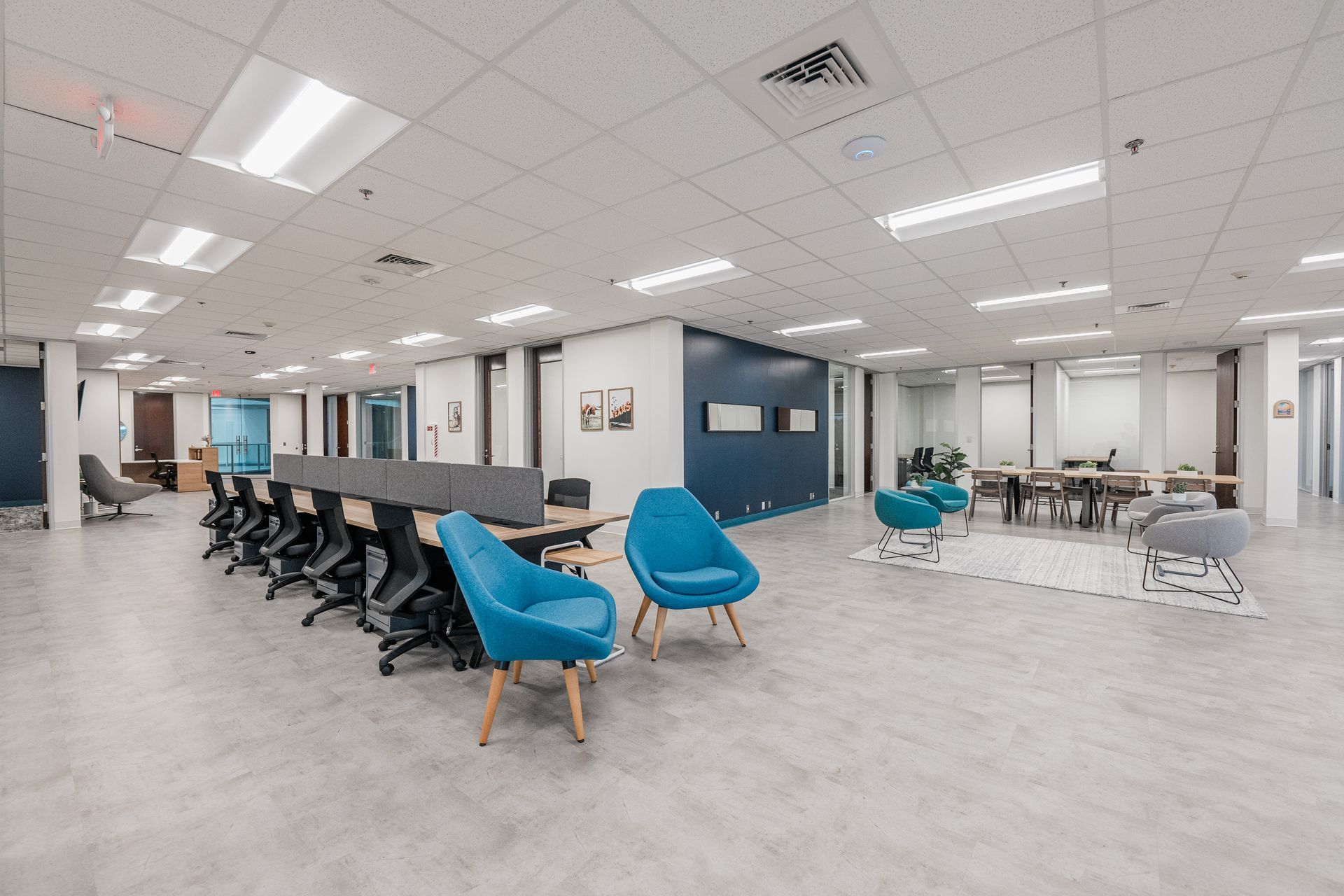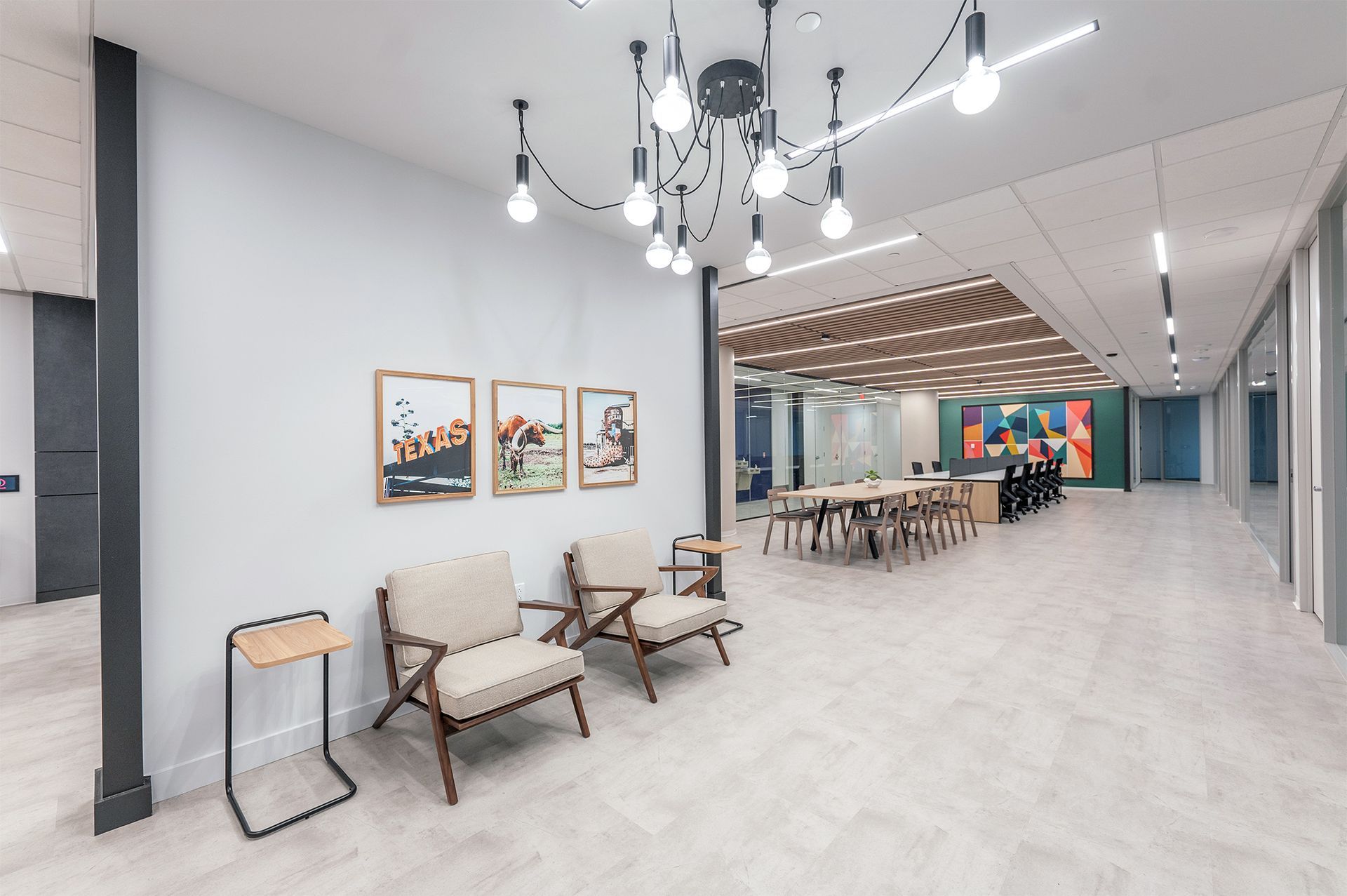Coworking Space Technology Trends to Expect in 2024
Brad True • January 16, 2024
In the wake of the COVID-19 pandemic, the ability to work remotely has become more than just a response to global challenges; it has evolved into a fundamental shift in the way employees and employers perceive the traditional office space and work environment. In 2023, 12.7% of full-time employees worked at home, while 28.2% worked a hybrid model. As we step into 2024, we will examine the latest remote work trends and explore how employees working remotely, whether on a full-time or hybrid work model, have redefined the concept of “the office” and, in turn, their work experience.
The Current Landscape
Even before the COVID-19 pandemic, remote work had grown in popularity, reshaping traditional work models and redefining the relationship between employees and employers. The pandemic was a key catalyst in the public realization of the ability to work full-time remotely.
As a result, remote work options have evolved from temporary measures to long-term strategic choices for organizations worldwide. Once tethered to the constraints of office space, companies have embraced the concept of fully remote or hybrid work models, recognizing the benefits offered to employees and the overall work environment.
The remote work experience has also become synonymous with increased autonomy and reduced commuting stress. As companies increasingly adopt hybrid work models, the contemporary work landscape is marked by a dynamic interplay between in-person and remote collaboration, challenging conventional notions of where and how work should be conducted.
Remote Work Culture
Building a robust remote work culture is imperative as the ability to work remotely becomes an integral facet of the contemporary work model. Recognizing that remote workers, whether engaged full-time or on a hybrid work arrangement, require a sense of connection and belonging, organizations are investing in strategies to foster a cohesive remote work environment. The remote work experience extends beyond task completion; it encompasses cultivating a shared identity and values, even without a physical office space.
Creating a remote work culture involves deliberate efforts to maintain open communication channels, encourage virtual collaboration, and nurture a supportive community for remote employees. With traditional water cooler conversations replaced by virtual meetings and team collaboration tools, the emphasis on interpersonal connections becomes paramount. Employers are leveraging technology for task management and facilitating casual interactions that contribute to team cohesion. Video conferences, virtual team-building activities, and digital communication platforms are instrumental in bridging the gap and enhancing the remote work experience.
Cybersecurity Concerns
The shift towards remote work introduces many cybersecurity challenges that organizations must address to safeguard sensitive information and maintain the integrity of their operations. The absence of the traditional office space creates a decentralized environment, making remote workers susceptible to cyber threats.
One primary concern in the remote work landscape is the secure handling of company data. With employees working outside the confines of a protected office network, the potential for data breaches and unauthorized access increases. Cybercriminals exploit vulnerabilities in home networks and personal devices, making it imperative for companies to implement robust cybersecurity measures. From secure virtual private networks (VPNs) to multifactor authentication, organizations are deploying comprehensive tools to fortify their defenses against cyber threats.
The remote work experience has also magnified the importance of cybersecurity training for employees. As remote workers become the frontline defenders against cyber threats, they must be well-versed in identifying phishing attempts, practicing secure online behaviors, and understanding the potential risks associated with remote work. Employers are investing in cybersecurity education and awareness programs to empower their workforce and create a culture of vigilance. The convergence of improved work-life balance through remote work and the need for heightened cybersecurity measures underscores the necessity for organizations to strike a delicate balance between flexibility and security in the evolving work environment.
Future Trends
Looking ahead to 2024 and beyond, the remote work landscape is poised to undergo further transformation, with several key trends shaping the future of work. One notable shift is the evolution of hybrid work models. Companies are likely to refine and optimize their hybrid work strategies, tailoring them to the specific needs of their workforce and the nature of their industry. This trend reflects an ongoing commitment to flexibility and the ability to work from various locations, offering employees a blend of the benefits associated with both remote and in-person work experiences.
Technological advancements are expected to play a pivotal role in shaping remote work trends in the coming years. Integrating artificial intelligence (AI) and automation tools will further streamline remote workflows, enhancing efficiency and productivity. As remote work options become more ingrained in the work model, the development of innovative technologies will cater to the unique demands of virtual collaboration, providing employees and employers with tools that bridge the gap between physical and digital workspaces.
Another noteworthy trend is the increased emphasis on employee well-being in remote work scenarios. Acknowledging the importance of mental health and work-life balance, organizations will likely prioritize initiatives supporting their remote workers' holistic wellness. This includes fostering a positive remote work culture, providing resources for managing stress and burnout, and offering flexible schedules to accommodate diverse individual needs. As we navigate towards 2024 and beyond, the ability to work remotely will not only be a functional aspect of employment but a crucial component in attracting and retaining talent in an increasingly competitive job market.
Created to Innovate
Remote work trends have evolved remarkably, catalyzed by global events and driven by the changing expectations of employees and employers alike. As we look ahead to 2024 and beyond, the ability to work remotely is not just a trend but a defining feature of the modern work model.
For businesses and remote workers seeking an exceptional coworking space that aligns with these trends,
The Cannon stands out as a stellar choice. With state-of-the-art facilities, a dynamic community, and a commitment to fostering collaboration, The Cannon provides an ideal environment for individuals and businesses to thrive in the ever-evolving landscape of remote work. Experience any five of our seven workspaces across the Houston area with
the new day pass option!
Brad True
Brad oversees all overall day-to-day operations of The Cannon and its growing community, including all current and future Cannon locations and Cannon Connect, The Cannon's new online platform. He holds an undergraduate degree in marketing from Texas A&M and a graduate degree from the University of Oklahoma.











